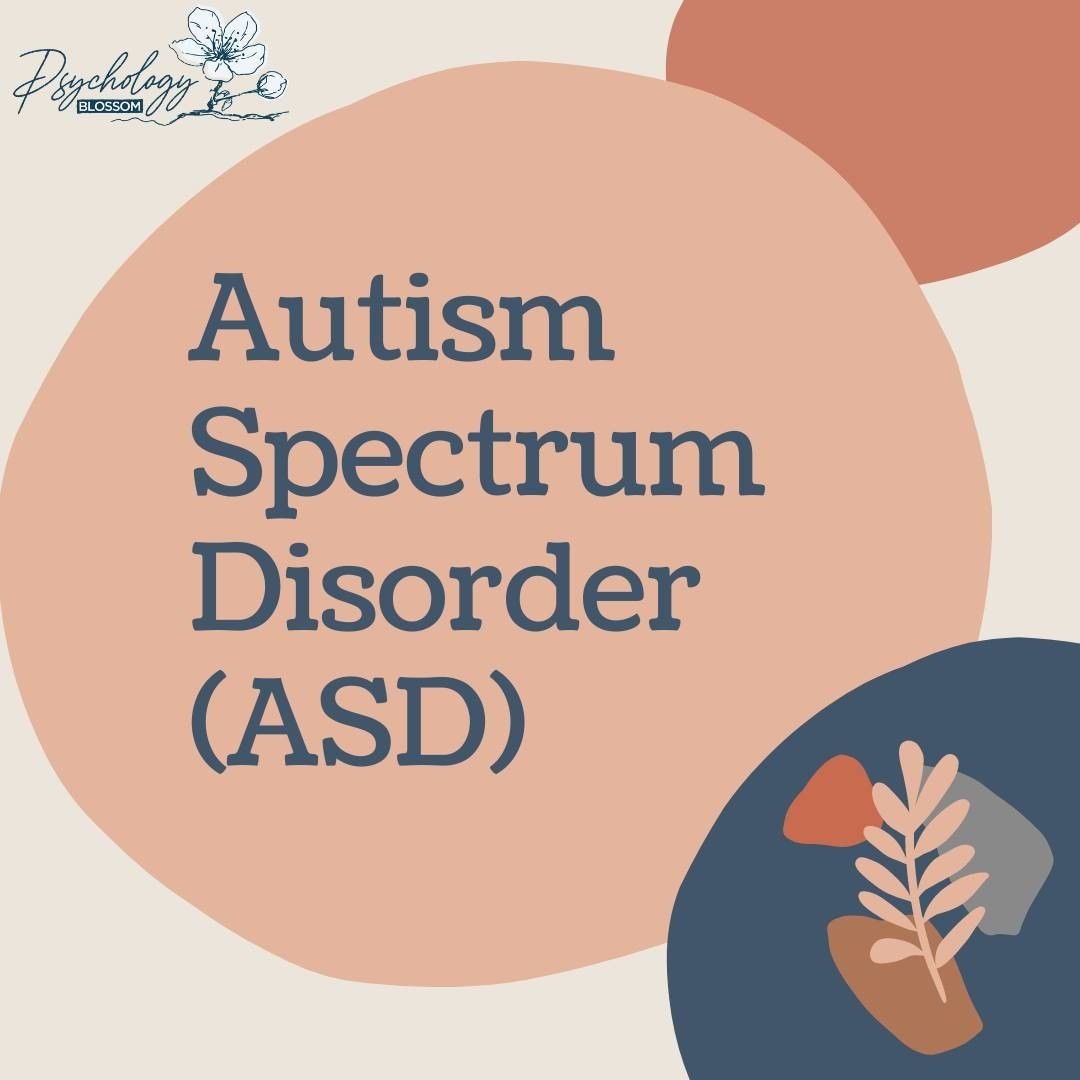Autism Spectrum Disorder (ASD) in Singapore: Understanding, Diagnosis, and Support
Autism Spectrum Disorder (ASD) is one of the most widely researched neurodevelopmental conditions in the world today, and it is increasingly recognised in Singapore. In fact, about 1% of the local population is diagnosed with ASD, and the number of reported cases has risen steadily since 2016. This rise is partly due to greater awareness in the general public, improved professional training, and more accurate diagnostic tools that now also capture presentations in girls and women who in the past were often overlooked.
What is ASD?
ASD is a term that covers a range of neurodevelopmental conditions, including Autism, Asperger’s Syndrome, Childhood Disintegrative Disorder, and Pervasive Developmental Disorder. Individuals with ASD vary greatly: some may need substantial daily support, while others may function independently and thrive academically or professionally. The unifying features of ASD are challenges in communication, social interaction, and restricted or repetitive behaviours. Research suggests a strong link to genetics and early brain development, but no single cause has been identified. Environmental influences and interactions with genetic predispositions are still under investigation.
Gender Differences in Autism
Historically, diagnostic tools were created around the male experience of autism. This led to misdiagnoses or underdiagnoses in girls and women. Current research has helped reveal how symptoms may manifest differently across genders.
✽ Sociability
Girls with ASD often appear more sociable than boys. They may make eye contact, engage in play, and mimic social behaviours. However, these skills are often masking strategies that hide underlying difficulties. Masking can be exhausting, and while it helps them appear typical, it delays recognition of their struggles and the support they need.
✽ Interests
Boys with ASD often show restricted interests that stand out, such as intense fascination with trains or numbers. Girls may have equally intense interests, but these are usually in age-typical areas such as celebrities, fashion, or animals. This makes the behaviour appear typical and thus less likely to be identified as a sign of autism.
Assessment of ASD: The ADOS-2
The Autism Diagnostic Observation Schedule, Second Edition (ADOS-2) is one of the most widely used diagnostic tools. It is a semi-structured and standardised assessment focusing on communication, social interaction, imaginative play, and restricted or repetitive behaviours. Depending on the individual’s age and language ability, one of five modules is used, ranging from toddlers (12–30 months) to verbally fluent adults. Each assessment lasts about 40–60 minutes. While ADOS-2 is reliable, ASD diagnosis also requires developmental history, observation across settings, and caregiver input.
Signs and Symptoms of ASD
Signs of ASD vary but often include difficulties in communication, relationships, and behaviour. Some of the more common symptoms include:
- Delayed or unusual development of language and communication
- Difficulties understanding instructions and social cues
- Challenges sustaining conversations and maintaining eye contact
- Problems interpreting tone of voice, facial expressions, and body language
- Sensitivity to sensory inputs such as light, sound, or touch
- Repetitive behaviours such as echolalia, hand flapping, or insistence on routines
- Difficulties maintaining friendships and experiencing social isolation
Not all individuals with ASD display the same combination of symptoms, and the severity can differ greatly from one person to another.
Why Early Assessment Matters
Obtaining an early diagnosis is crucial because it opens the door to early intervention and support. Without assessment, many individuals may face ongoing difficulties in school, work, and personal relationships without understanding why. Diagnosis not only provides clarity but also allows access to therapy, special education services, and community support. At Psychology Blossom, we provide assessments for both children and adults to help individuals and families understand their needs and strengths.
ASD Treatment and Support
There is no cure for autism, but there are effective ways to improve quality of life. Treatment is highly individualised, focusing on strengths, needs, and co-occurring conditions such as anxiety or ADHD. Common approaches include:
✽ Speech and Language Therapy
Speech therapy helps improve both verbal and non-verbal communication. Therapists may work on phonics, vocabulary, or alternative communication tools for non-verbal individuals.
✽ Occupational Therapy
Occupational therapists help children and adults improve daily living skills and manage sensory issues. Sensory integration strategies are often used to reduce overstimulation or under-responsiveness to sensory input.
✽ Psychological Support
Psychologists provide interventions such as Cognitive Behavioural Therapy to manage anxiety, regulate emotions, and strengthen coping strategies. Group therapy or social skills training can also be useful for building peer connections.
✽ Educational Frameworks
Structured teaching models such as TEACCH (Treatment and Education of Autistic and Communication-Handicapped Children), Floortime, and Applied Behavioural Analysis (ABA) are used in many centres. These methods aim to provide structure, improve communication, and enhance learning opportunities.
✽ Medication
While medication does not treat autism directly, it may be used to address co-occurring issues such as hyperactivity, anxiety, or irritability. Medications are prescribed carefully and tailored to individual needs.
Special Schools and Organisations in Singapore
Singapore has several organisations and schools dedicated to supporting individuals with autism. These include Autism Resource Centre, Autism Association, and schools such as Pathlight School, AWWA, Rainbow Centre, Eden School, and St. Andrew’s Autism Centre. These schools offer specialised curricula, small teacher-student ratios, and therapies integrated into the school day.
Supporting Families and Caregivers
Caring for someone with ASD can be rewarding but also demanding. Caregivers are encouraged to seek support networks, counselling, and respite care. Involving families in therapy sessions helps them understand strategies and reinforce them at home. Community-based support groups also provide emotional relief and practical advice.
“If a child can’t learn the way we teach, maybe we should teach the way they learn.” – Ignacio Estrada.
At Psychology Blossom, we believe in adapting approaches to each child or adult’s learning style and providing a safe, inclusive space for growth.
We recommend This Video to those who want to learn more about Autism Spectrum Disorder.
